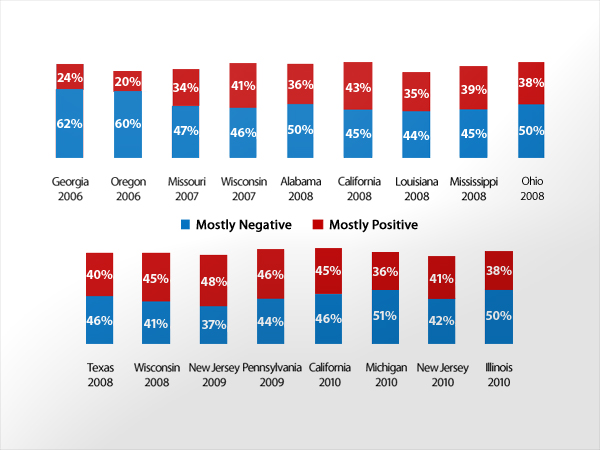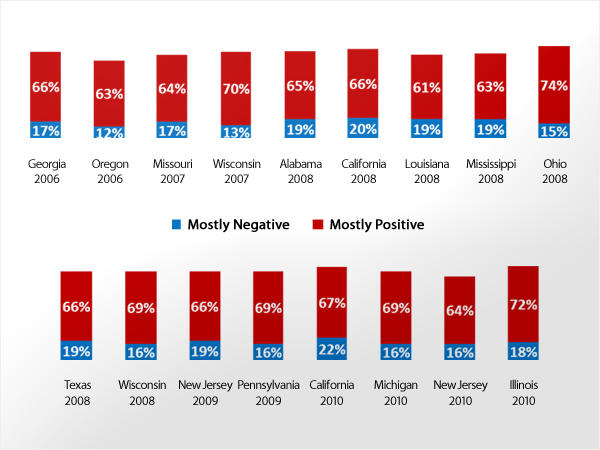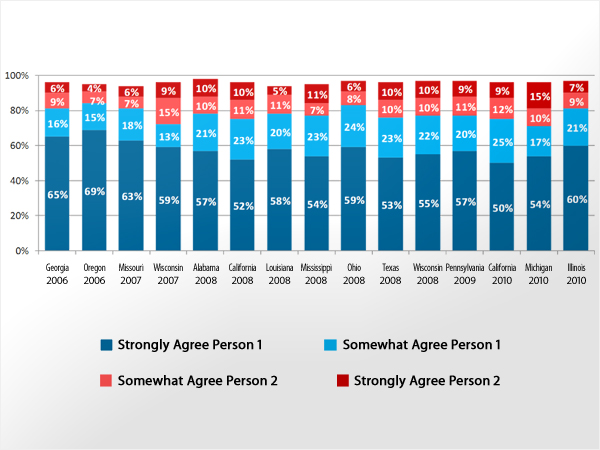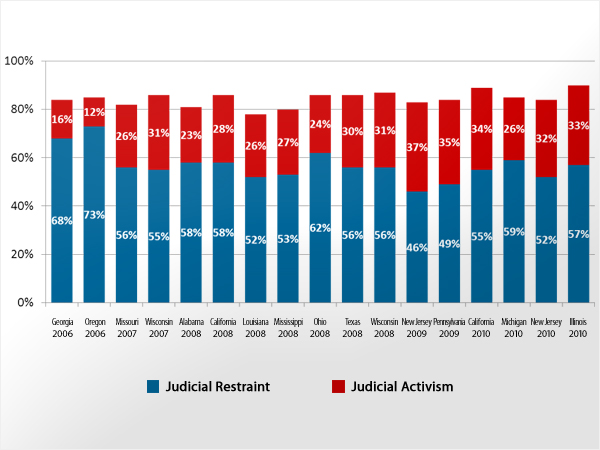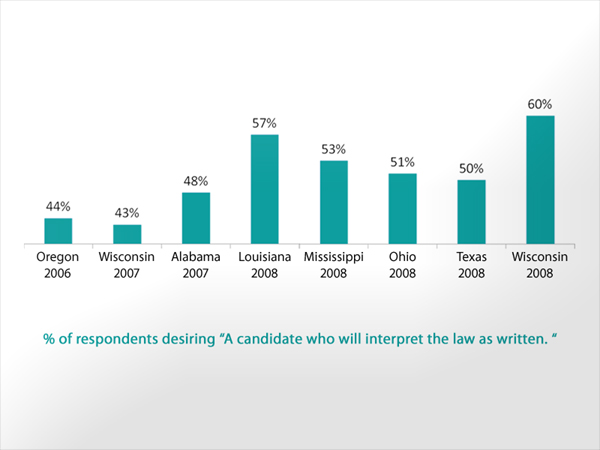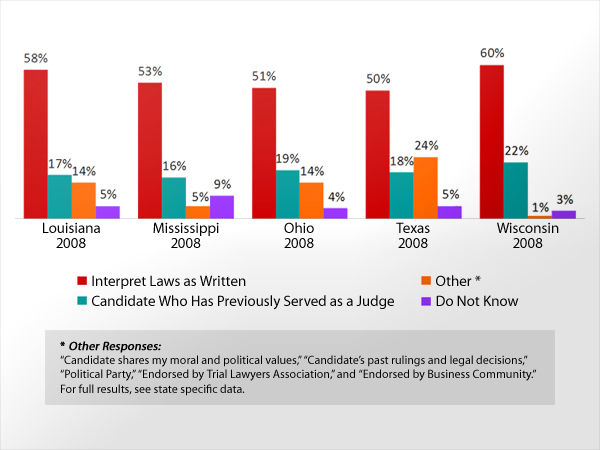Attitudes Towards Judicial Activism
"Judicial activism" is a term used to describe when a judge feels that his or her role is not simply to review the law as it is written, but is instead to allow for new or evolving meaning of the law over time. Do you think judicial activism is a mostly positive or mostly negative thing for the [insert state] Supreme Court? *
Attitudes Towards Judicial Restraint
"Judicial restraint" is a term used to describe when a judge views his or her role solely as an evaluator of whether a law or lower court ruling is in line with the state constitution. Do you think judicial restraint is a mostly positive or mostly negative thing for the [insert state] Supreme Court? *
Majorities Favor Judges Interpreting Laws As Written
I am going to read you the opinions of two people. Please tell me which one comes closest to your view.
Person #1: Judges should interpret and apply the law as it is written and not take into account their own viewpoints and experiences.
Person #2: Judges should go beyond interpreting and applying the law and take into account their own viewpoints and experiences. *
Citizens Prefer Judicial Restraint Over Judicial Activism
Based on the definitions I gave you, would you rather the [insert state] Supreme Court practice judicial activism or judicial restraint? *
Citizen Preference for Interpreting the Law as Written
Which of the following will be MOST important to you in deciding how to vote for the [insert state] Supreme Court this November? *
"Interpret Laws As Written" Is Most Compelling Criteria for Citizens in Judicial Election States
Which of the following will be MOST important to you in deciding how to vote for the [insert state] Supreme Court this November? *
* Poll conducted by the polling company, inc./WomanTrend on behalf of The Federalist Society
Other Polling on Judicial Philosophy
-
-
-
-
Opinion Research Corporation
-


